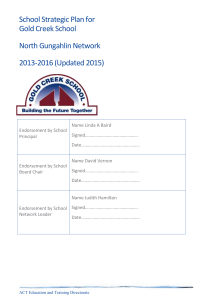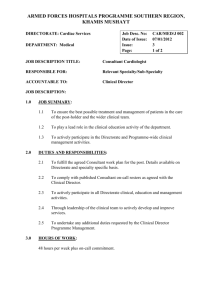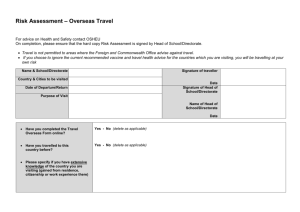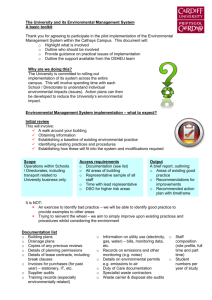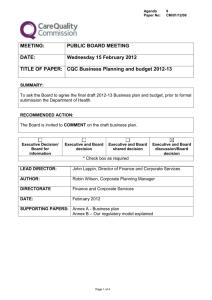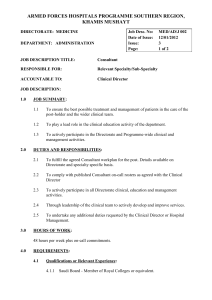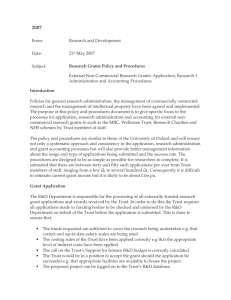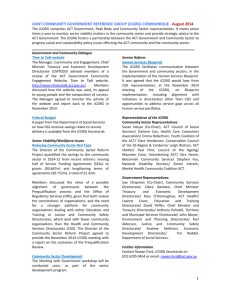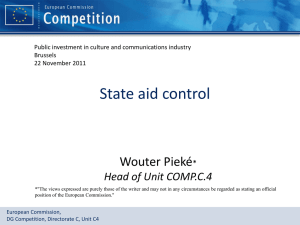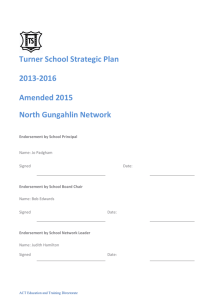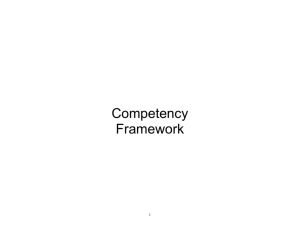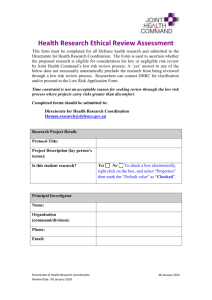Job Description and Person Specification
advertisement
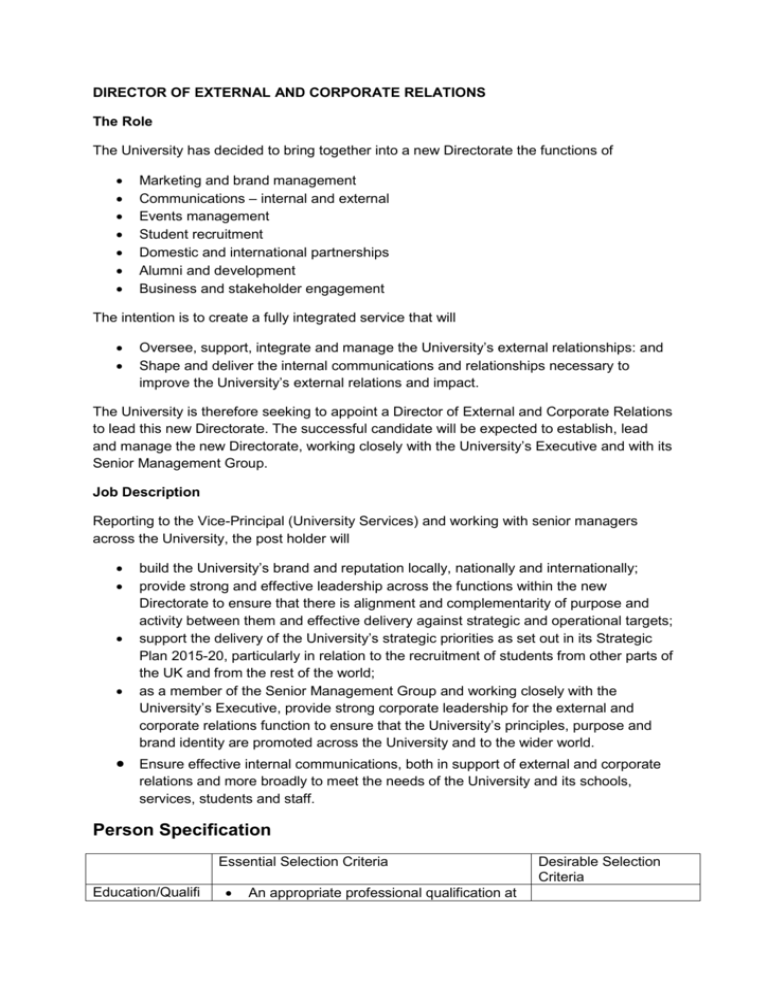
DIRECTOR OF EXTERNAL AND CORPORATE RELATIONS The Role The University has decided to bring together into a new Directorate the functions of Marketing and brand management Communications – internal and external Events management Student recruitment Domestic and international partnerships Alumni and development Business and stakeholder engagement The intention is to create a fully integrated service that will Oversee, support, integrate and manage the University’s external relationships: and Shape and deliver the internal communications and relationships necessary to improve the University’s external relations and impact. The University is therefore seeking to appoint a Director of External and Corporate Relations to lead this new Directorate. The successful candidate will be expected to establish, lead and manage the new Directorate, working closely with the University’s Executive and with its Senior Management Group. Job Description Reporting to the Vice-Principal (University Services) and working with senior managers across the University, the post holder will build the University’s brand and reputation locally, nationally and internationally; provide strong and effective leadership across the functions within the new Directorate to ensure that there is alignment and complementarity of purpose and activity between them and effective delivery against strategic and operational targets; support the delivery of the University’s strategic priorities as set out in its Strategic Plan 2015-20, particularly in relation to the recruitment of students from other parts of the UK and from the rest of the world; as a member of the Senior Management Group and working closely with the University’s Executive, provide strong corporate leadership for the external and corporate relations function to ensure that the University’s principles, purpose and brand identity are promoted across the University and to the wider world. Ensure effective internal communications, both in support of external and corporate relations and more broadly to meet the needs of the University and its schools, services, students and staff. Person Specification Essential Selection Criteria Education/Qualifi An appropriate professional qualification at Desirable Selection Criteria cations Knowledge and Experience Skills/abilities/ competencies post-graduate level or equivalent A commitment to continuing professional development Senior management/strategic-level experience in more than one of the functions to be covered by the new Directorate Extensive experience of working at a strategic level with other senior managers Proven leadership, people management and team building capacity Experience of governance through working directly with Boards and Committees Strong communication skills Capacity to lobby and influence at the highest levels in Government, business and among other stakeholders The interpersonal and communication skills to work collaboratively, foster co-operation with and influence internal and external colleagues at all levels Customer focussed - able to identify, understand and give priority to meeting the needs of internal and external customers Ability to act as a role model of the University’s values and expected leadership behaviours Commercial acumen and an enterprising approach to work Budgeting and financial experience knowledge of, interest in and preferably some direct experience of higher education The essential competencies are set out below, along with details of the expected levels of competency. Competencies In order to achieve Abertay University’s goals and meet the requirements of the role as outlined above, the Director will need to demonstrate the following competencies: Decision Making Definition: Active contribution to/ leadership of decision making processes within the team which ensure objectives are achieved and quality standards are maintained. Expected level: The ability to combine rational analysis and experience to take longlasting and or complex decisions that can be successfully implemented across the University or by external bodies. Design processes to assist complex and sustainable decision making and identify possible options previously not considered and implications that may have wider and longer term impact. Initiative and Problem Solving Definition: Showing desire for continuous improvement in individual and team performance by actively contributing to problem solving and responding positively to opportunities for development. Expected level: The ability to co-ordinate the efforts of others, anticipate problems and turn possible threats into opportunities. Identify ways of maximising opportunities for the benefit of the University based on analysis, experience and the views of others. Planning and Organising Definition: Proactive planning, prioritisation and organisation of work activities and resources to ensure best value is achieved whilst maintaining service availability and quality standards. Expected level: The ability to ensure planning processes are robust and well informed by gathering intelligence to influence the University’s internal and external operations involving key stakeholders to gain their commitment to implementation. Carry out evaluation and provide feedback to support the achievement of the longer term strategy by using opportunities to create and plan resources to secure the University’s long term future. Effective Communication Definition: The use of appropriate communications media and methods, to convey, explain or discuss information in a manner that is clear and accurate for the target audience. Expected level: The ability to evaluate feedback and adapt their communication style and make use of appropriate media to influence the views of others while being regarded as an interesting and a well-informed conveyor of ideas. Liaison and Networking Definition: Active participation in, contribution to or leadership of internal/external networks which build positive relationships and promote collaborative/inter-disciplinary working. Expected level: The ability to recognise the need for and set up sustainable networks to develop institutional best practice and innovation, while developing collaborative approaches to promote the University, achieve mutual benefit and partnership working. Teamwork and Motivation Definition: Working with others in a co-operative and collaborative capacity to motivate and, where necessary, lead teams to achieve their objectives. Expected level: The ability to develop team members’ abilities and attain greater levels of achievement by encouraging joint working. Act as a role model by putting partnership working into practice and facilitating and encouraging cross team working.
